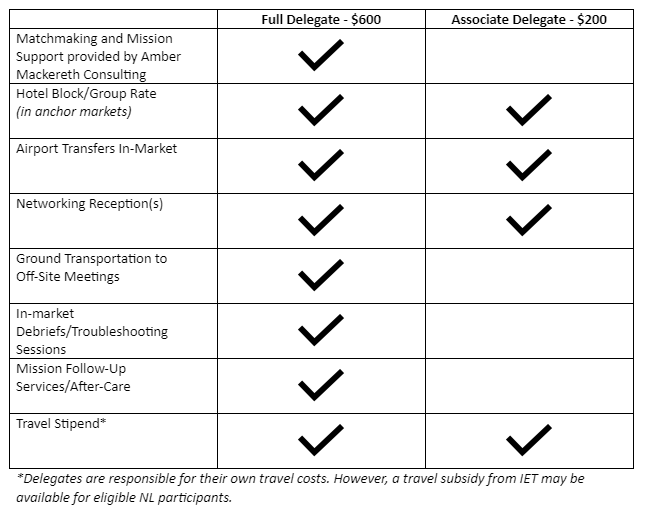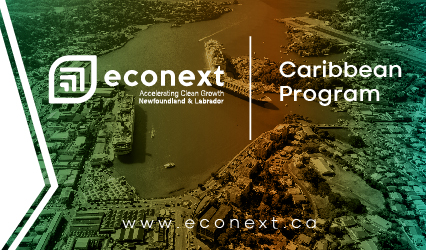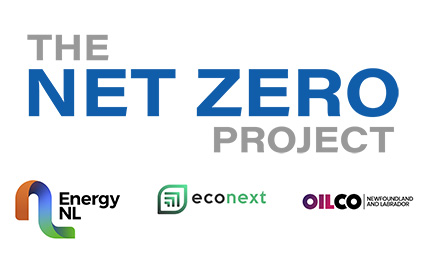
LAST CHANCE: 3 SPACES REMAINING!
econext, in partnership with the Atlantic Canada Opportunities Agency (ACOA) and the Department of Industry, Energy, and Technology (IET), is continuing its work assisting firms from Atlantic Canada in the investigation and pursuit of international business opportunities in the Caribbean region, with particular focus on the Green and Blue Economies.
Registration will be closing March 24, 2023 for the Spring mission to the Caribbean region with an intent to focus travel primarily around the business week of May 15-19, 2023.
Each delegate firm/organization may select to receive support services in up to two markets.
What's Included
Participants in this trade mission will receive:
- Matchmaking and Mission Support provided by Amber Mackereth Consulting
- Hotel Block/Group Rate*
- Airport Transfers In-Market
- Networking Reception(s)*
- Ground Transportation to Off-Site Meetings
- In-market Debriefs/Troubleshooting Sessions*
- Mission Follow-Up Services/After-Care
- Travel Stipend: Delegates are responsible for their own travel costs. However, a travel subsidy from IET may be available for eligible NL participants.
*in anchor markets/markets with sufficient delegate presence
Interested in participating in the mission to do your own follow-up meetings? Consider registration as an Associate Delegate!

Contact abbie@econext.ca to register as an Associate Delegate
Eligibility
To register for the Spring mission, companies must meet the following criteria:
- Clear financial standing with econext and its funding partners ACOA and IET
- Completion of registration form and mission profile
- Confirmed payment of registration fee – $600.00 + HST for Full Delegate | $200.00 + HST for Associate Delegate
- Demonstrated export readiness/market research
- Confirmation of flight itinerary by April 6, 2023.
It is highly recommended that firms considering this trade mission have completed preliminary market analysis/research.
FAQ
FAQ
What are the target markets for this mission?
Our missions are customizable! We believe that each delegate should select markets that make sense based on your own objectives and market research instead. Receptions, briefing sessions, etc. will take place in “anchor markets”, or markets seeing significant delegate presence.
What happens if public health guidance changes regarding non-essential travel?
Should econext decide that travel to the region is no longer advisable prior to the creation of mission meeting programs, the mission may be postponed.
If travel restrictions change after matchmaking has begun, the mission may pivot to a virtual format. It takes considerable time and effort to create and confirm tailored meeting programs, and delegates will be expected to devote similar attention and effort to the execution of a virtual program if need be.
Registration
Registration deadline for this mission is March 24, 2023, however early registration is encouraged!
*Please note that there are a limited number of spaces available for this opportunity and that meeting the minimum eligibility criteria does not guarantee registration.*
If you have any questions about the econext Spring Mission, Please Contact Abbie at abbie@econext.ca.






